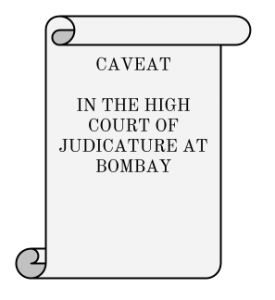What is a Caveat?
A Caveat is a Notice given by a person, informing the Court that another person may file a suit or application against him and that the Court must give the Caveator (person filing the Caveat) a fair hearing before deciding any matter brought before it in the relevant case.
As per Order XI A, section 148A of the Code of Civil Procedure ,1908:
148A. Right to lodge a caveat— (1) Where an application is expected to be made, or has been made, in a suit or proceedings instituted, or about to be instituted, in a Court, any person claiming a right to appear before the Court on the hearing of such application may lodge a caveat in respect thereof.
Is it mandatory to file a Caveat?
No. A Caveat is optional and need not be filed.
In which Court(s) can a Caveat be filed?
Caveats can be filed in a principal Civil Court of original jurisdiction, an Appellate Court, the High Courts and the Supreme Court. This includes the Court of Small Causes. This includes all courts which have powers of a Civil Court including Tribunals, Forums and Commissions which are vested with the power of such a court.
Can I file a Caveat in the Consumer Forum or National Commission or Central Administrative Tribunal or with any similar quasi-judicial body?
The Principle of Natural Justice (audi alteram partem) suggests that a fair chance of hearing should be given to the other party. All tribunals and commissions are bound to follow this principle and hence must accept Caveats for all practical purposes. However, in place of Caveats, many laws require that the other party be given prior notice of any judicial proceedings.
When is a Caveat filed? Why do people file Caveats?
A Caveat is filed when the Caveator anticipates some legal proceeding filed against him by another party, in the near future.
There are multiple reasons of filing a Caveat, some of which include:
- to clarify the Caveator’s address
- to place on record his intention to participate in the proceedings
- to prevent any ad interim order or injunction being passed without his appearance to defend his case (also known as an ex parte order)
What are the consequences of not filling a Caveat?
What is the time duration of the enforceability of a Caveat?
The Caveat is valid for 90 days from the date of lodging in the Court. Before the expiry of the period of 90 days, a fresh application can be made to extend the period of the Caveat for a further period of 90 days.
As per Order XI A, section 148A of the Code of Civil Procedure ,1908:
(5) Where a caveat has been lodged under sub-section (1), such caveat shall not reman in force after the expiry of ninety days from the date on which it was lodged unless the application referred to in sub-section (1) has been made before the expiry of the said period.
What details should the Caveat contain?
The Caveat must contain:
- The Name of the Court where the Caveat is to be filed
- The Suit / Petition / Appeal No. if it exists
- Caveator’s Name (Person making the Caveat)
- Brief Details of Suit / Appeal likely to be filed
- Name(s) of possible Plaintiff(s) / Appellant(s)
- Caveator’s Address for service of the Notice when it is filed
- Address where Notice of Caveat sent to the Other Parties by RPAD
What are the Court fees for filing a Caveat?
Does every court have separate rules for filing Caveats?
Most High Courts have some specific rules for filing Caveats, but they are all pretty much similar.
Bombay High Court Caveat Rules: https://bombayhighcourt.nic.in/libweb/acts/cpc1908/Order40A.pdf
Delhi High Court Caveat format: https://delhihighcourt.nic.in/writereaddata/upload/Downloads/DownloadFile_KUD67PSJ.PDF
What happens after a Caveat is filed?
Sample Caveat
Caveat Notice Sample
